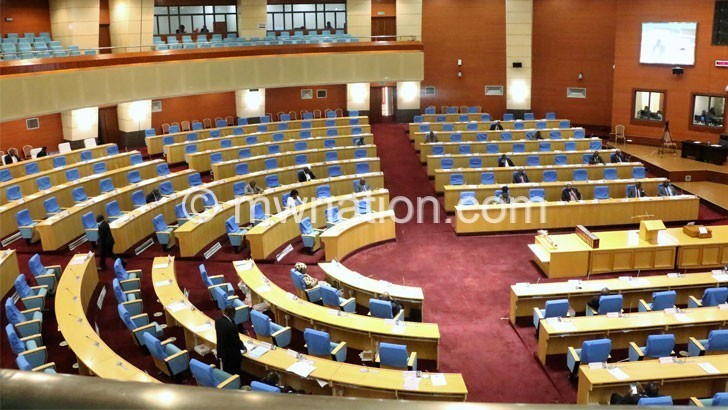Parties register mixed fortunes on MPs
Political parties have registered mixed fortunes in the parliamentary race in the May 21 2019 Tripartite Elections with some registering gains over their previous standing, others dwindling in strength while independents and female legislators positively gained.
Official results for the parliamentary elections Malawi Electoral Commission (MEC) chairperson Jane Ansah announced at the national tally centres on Saturday evening show that Democratic Progressive Party (DPP) won 62 seats in the 193-seat National Assembly followed by Malawi Congress Party (MCP) and independent candidates with 55 apiece.

Parties such as United Democratic Front (UDF), which formed the first post-independence multiparty administration in 1994, and Alliance for Democracy (Aford) continued to dwindle in strength if the results are anything to go by.
For the record, in the 1994 General Elections, UDF won 85 seats in the then 177-seat Parliament before rising to 91 in the 1999 General Elections when the number of seats was increased to the current 193. However, the party’s representation dwindled to 49 legislators in 2004, 17 in 2009, 14 in 2014 and now 10 in 2019.
The situation has been worse for Aford which in 1994 won 36 seats, including a clean sweep of the then 33 seats in the Northern Region one in Nkhotakota and two in Kasungu.
In 1999, Aford won 29 seats before plunging to six in 2004 then one each in 2009, 2014 and 2019.
UTM Party, the country’s newest registered political outfit led by Vice-President Saulos Chilima, has won four parliamentary seats in its debut. The seats are two in Nkhata Bay, one in Ntcheu and one in Blantyre City.
People’s Party (PP), which governed the country between 2012 and 2014 and contested its first tripartite election in 2014, has seen its representation in Parliament drop to five from 26.
Independents continue to be a growing constituency with their numbers increasing from 52 in the 2014-19 Parliament to 55 in the new Parliament.
The numbers of independent MPs has been on the rise from zero in 1994 to four in 1999 then 38 in 2004. The figure rose to 32 in 2009 and 52 in 2014.
Political analysts have attributed the growing constituency of independent legislators to lack of intraparty democracy in political parties where some candidates preferred by party leadership are imposed on the voters.
In a recent interview, Ernest Thindwa, a political scientist based at the University of Malawi’s Chancellor College, said the rising number of independents is an indication voters are losing faith in political parties.
He added that the situation also reflects mismanagement of primary elections.
The next Parliament will have six political parties, namely DPP, MCP, UDF, PP, UTM, Aford and independents. This means the 2004-09 Parliament remains the parliamentary cycle with a record nine political parties represented.
In the 2004-09 Parliament, there was representation from UDF (49 legislators), MCP (59), Aford (six), the now-defunct National Democratic Alliance (NDA) (eight), People’s Transformation Movement (Petra) one MP, Congress for National Unity (Conu) one MP, Republican Party (RP) with 16, defunct Movement for Genuine Democracy (Mgode) with three, Progressive People’s Movement (PPM) seven and Malawi Forum for Unity and Development (Mafunde) one legislator.
In the course of the parliamentary cycle, DPP was born in 2005 and won six seats in by-elections, effectively increasing representation by political parties to 10.





